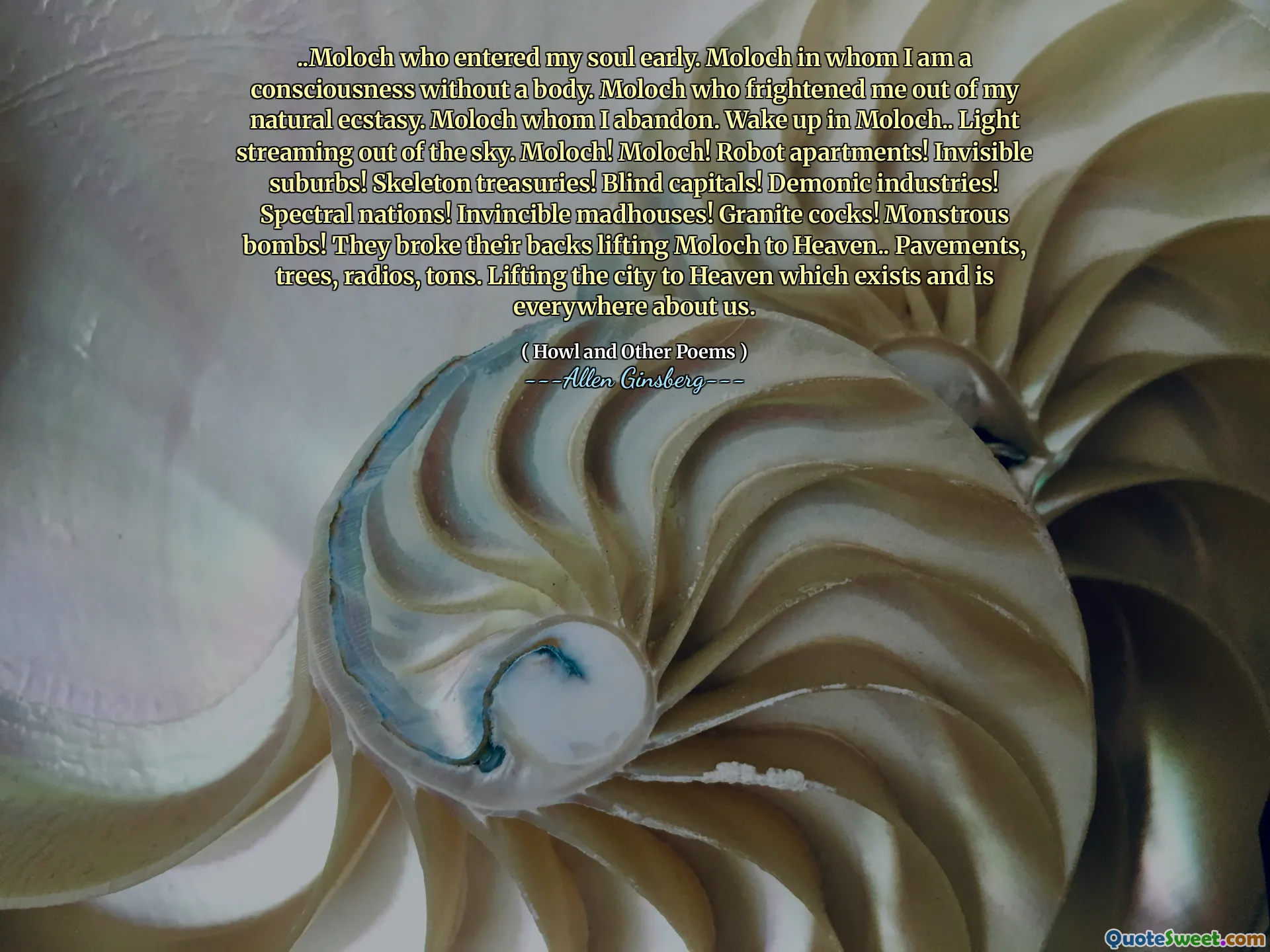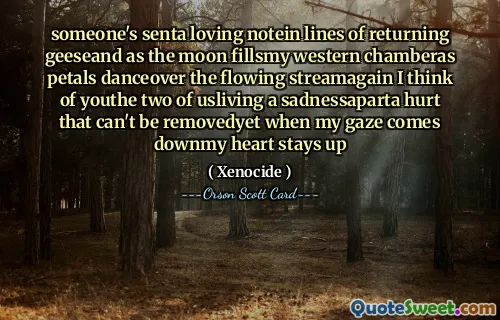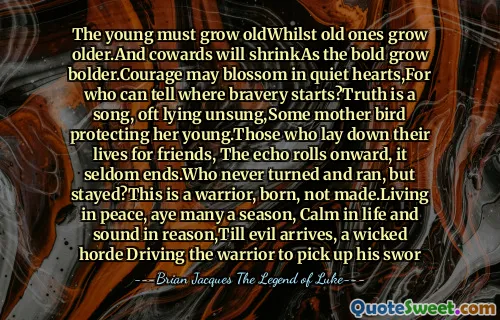
..Moloch who entered my soul early. Moloch in whom I am a consciousness without a body. Moloch who frightened me out of my natural ecstasy. Moloch whom I abandon. Wake up in Moloch.. Light streaming out of the sky. Moloch! Moloch! Robot apartments! Invisible suburbs! Skeleton treasuries! Blind capitals! Demonic industries! Spectral nations! Invincible madhouses! Granite cocks! Monstrous bombs! They broke their backs lifting Moloch to Heaven.. Pavements, trees, radios, tons. Lifting the city to Heaven which exists and is everywhere about us.
This powerful and visceral excerpt from Allen Ginsberg's poetry vividly condemns the dehumanizing forces of modern industrial society and capitalism. The repeated invocation of Moloch, a biblical and mythological figure associated with destruction and sacrifice, serves as a metaphor for the destructive entities that consume human life, spirit, and nature. Ginsberg's portrayal highlights the pervasive influence of technology, capitalism, and urban development—illustrated through images of robot apartments, invisible suburbs, skeleton treasuries, and demonic industries—that elevate materialism to a godlike stature, at the expense of authentic human experience. The imagery of light streaming out of the sky juxtaposed with the relentless depiction of societal monsters underscores the conflict between spiritual longing and the oppressive mechanical systems that dominate the modern world. The poem challenges us to reflect on the costs of these societal sacrifices—how progress is often built upon the exploitation and destruction of natural and human resources. Ginsberg's critique is not merely poetic but also a call for awareness and resistance against the dehumanization driven by relentless industrial and economic forces that elevate profit and power over life and ecological balance. This haunting depiction urges us to consider what it means to reclaim our vitality and spiritual authenticity amidst a landscape increasingly dominated by destructive modernity.




